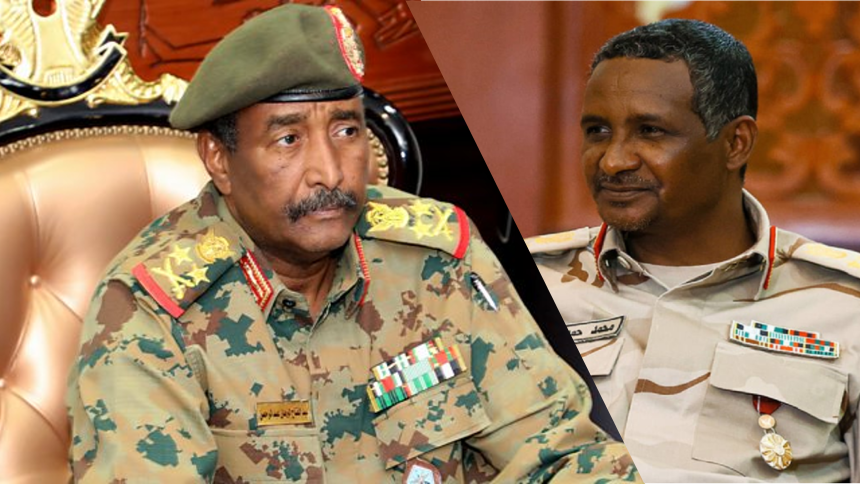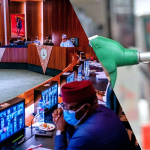The 72-hour extension by the two fighting sides in Sudan comes after strong diplomatic efforts by neighboring countries, as well as the US, UK, and UN.
However, reports of heavy fighting in Khartoum’s capital continue.
The previous cease-fire allowed thousands of people to flee to safety, and dozens of countries attempted to evacuate their residents.
Hundreds of people have been killed in nearly two weeks of violence between the army and a rival paramilitary group.
The ceasefire was set to expire at midnight local time (22:00 GMT on Thursday).
The Sudanese regular army agreed to an extension early Thursday evening, and its adversary, the paramilitary Rapid Support Forces (RSF), followed suit hours later.
South Sudan has offered to host peace negotiations, and the army has agreed to send delegates.
US Secretary of State Antony Blinken said the US was “very actively working” to extend the cease-fire, saying that while it was flawed, it has reduced violence.
However, White House spokeswoman Karine Jean-Pierre later stated that the situation could deteriorate at any time.
Meanwhile, the RSF and eyewitnesses reported that the army was pounding its positions in Khartoum.
Maryam al-Sadiq al-Mahdi, the former civilian government’s foreign minister, told the BBC from her house in Khartoum that despite the ceasefire, residents were still living in fear.
“What they call a truce has nothing to do with what is happening,” she told Radio Four’s World Tonight programme. “The bombardment by the aeroplanes is taking place almost all day and night.”
Fighting has also been reported in neighboring provinces and the western Darfur region.
At least 512 people have been murdered and almost 4,200 have been injured in the battle, while the true number of dead could be significantly higher.
The World Health Organization predicted “many more” deaths owing to disease outbreaks and a lack of services.
According to health experts, most hospitals in combat zones are closed, and more than 60% of health facilities in Khartoum are closed.
Former British Foreign Secretary and International Rescue Committee president David Miliband warned that the international community risked overlooking the bigger problem in Sudan in its drive to rescue foreign nationals.
“The fact that for the last 10 days pretty much all the media coverage and the vast bulk of political attention has been on getting out thousands of people and not on the need to tend to millions of people really sticks in the gullet,” he told the BBC.
“Of course the lives of the thousands who need to evacuate are important, but what about the 45 million who are left?
“Sudan’s population has 15 million people in humanitarian need and I think part of our call today as the International Rescue Committee is to say let’s not fall into that trap of thinking that once thousands are evacuated, the problem is solved.”
According to Reuters, the army has gained control of most of Sudan’s regions, but “the situation is a bit complicated in some parts of the capital.”
The BBC was unable to independently verify the army’s assertions.
Foreign governments, particularly the United Kingdom, have urged its nationals to leave the country as quickly as possible.
Ms Jean-Pierre urged Americans to leave within the next 24 hours in a speech on Thursday evening.
Evacuations are still underway, but many foreigners remain in Sudan. Some people have had difficulty getting to the airstrip utilized for evacuations.
Local civilians are still fleeing the capital, where food, water, and fuel are in short supply.
Fighting erupted on April 15 as a result of a heated power struggle between the regular army and the RSF.
Army leader Gen Abdel Fattah al-Burhan and RSF chief Gen Mohamed Hamdan Dagalo, popularly known as Hemedti, disagree on the country’s projected transition to civilian administration, particularly on the timeline for integrating the 100,000-strong RSF into the army.
Both factions in Sudan are afraid of losing power since both sides have members who could end up in the International Criminal Court for war crimes committed in Darfur nearly 20 years ago.






